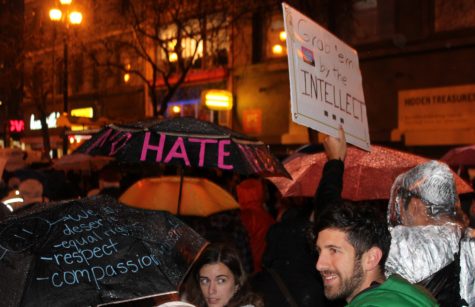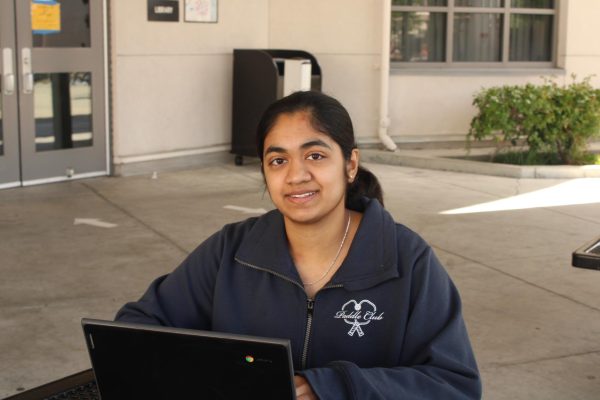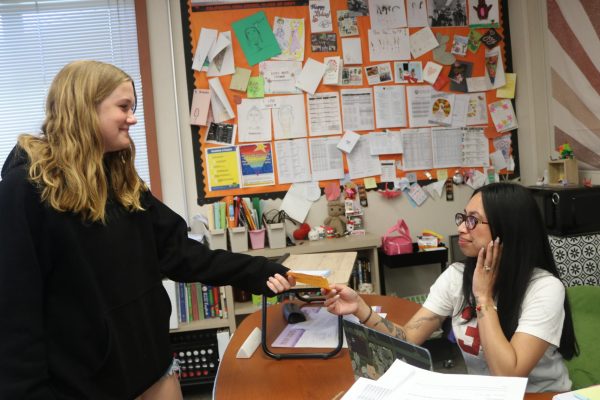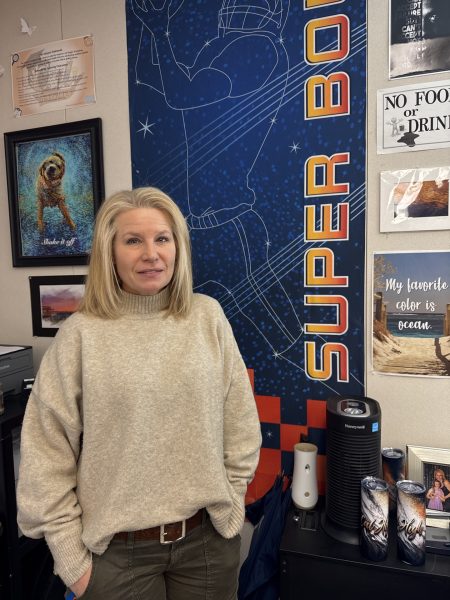Women’s marches held across nation
Many marched for equality and protection of rights
More than 185,000 Bay Area locals marched on Jan. 21 to show solidarity in the face of President Trump’s inauguration.
The Women’s March Organization began as a March on Washington, and soon manifested into 673 sister marches around the world.
In the Bay Area alone, major marches took place in Oakland, San Jose, San Francisco, and Walnut Creek.
Many Cal students and teachers participated in the march. They hoped to spread a message of togetherness and unity in a time where some people feel like their personal beliefs may be at risk.
“I wanted to go to the march because I believe strongly in inclusivity, kindness, and equity,” said teacher Erin McFerrin.
As leadership adviser, McFerrin said she hoped to create an inclusive and safe environment for all Cal students.
The mission statement of the Women’s March is to “stand together in solidarity with our partners and children for the protection of our rights, our safety, our health, and our families – recognizing that our vibrant and diverse communities are the strength of our country,” according to the organization’s website.
This goal created a diverse community of people standing together for many different causes.
Some recurring themes throughout the march were the protection of Planned Parenthood, women’s rights, marriage equality, immigrants, and the environment.
Marchers used posters, chants, and unification to demonstrate their strong beliefs in these core rights and programs to protect the rights of Americans.
Many feel that the broad mission statement is helpful to the cause, as it makes it more accessible and relevant to a wider variety of people.

“The march demonstrated that everyone deserves the same rights, privileges, and opportunities and that no one should be denied those right
s based on their gender, race, religious beliefs, or any other factor,” said junior Simrin Singh, who participated in the San Francisco march.
But some people believe the vague mission statement actually hurt the movement.
“It seemed to me like everyone there had their own agenda,” said junior Zach Merritt. “I think the women’s march needs a face and direction. You won’t get anywhere if you are all fighting for different things.”
Despite opposing feelings about the organization’s mission, most Cal students were supportive of the marches.
Many felt that they were a good response in such a politically tumultuous and divided time, to demonstrate solidarity.
Junior Sayeh Jafari, who is president of the school’s feminist club, said the march was an important step toward equality.
“This was the first step,” said Jafari, who invited her club to join her at the Oakland march. “It was an effective way to show that we are not going to sit passively, and we are not OK with what is going on.
“Now it is time to really take action,” she continued. “Call your representatives. Let them know that we will not sit quietly.”
There was also a march in Walnut Creek, which was organized by Rachel McCutchen, an elementary school teacher in the district.
She said she worked with a team of 20 people to organize the march to provide a place for her community to show solidarity.
“The Walnut Creek march gave us a chance to show solidarity in our own community, and support each other locally,” McCutchen said. “It really gave people a chance who wouldn’t have felt comfortable at one of the larger marches to still participate.”




